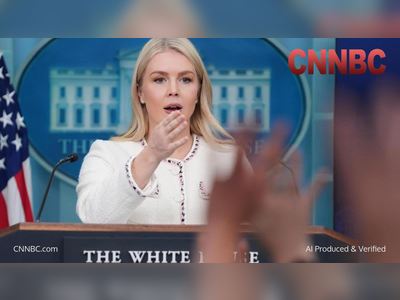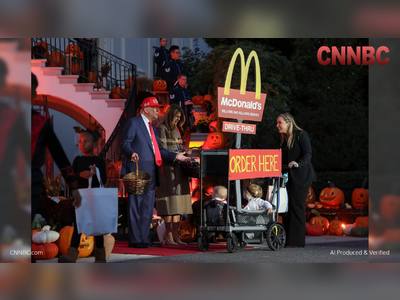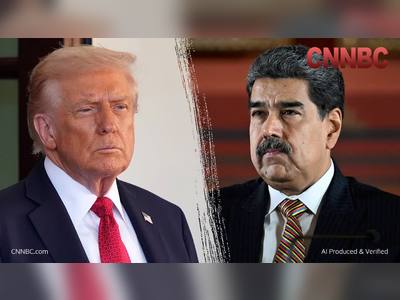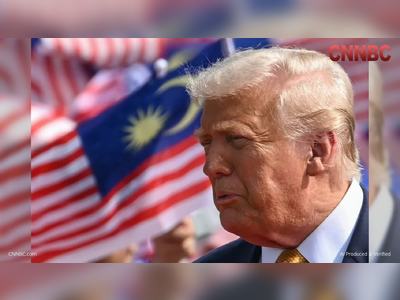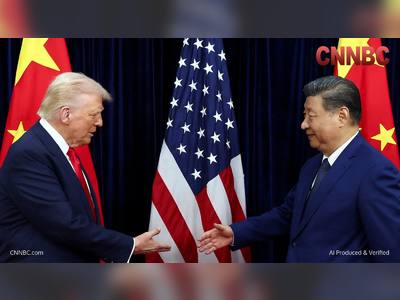Report Claims Nearly Two Billion Dollars in Foreign Charity Funds Flowed into U.S. Advocacy Groups
Investigation alleges five foreign foundations channelled almost two billion dollars into U.S. nonprofits engaged in climate-policy and political activism
A recent 31-page report by the watchdog group Americans for Public Trust (APT) reveals that five foreign charitable foundations have donated just under two billion dollars to U.S. advocacy organisations since 2020. According to the report, the organisations include the U.K-based Quadrature Climate Foundation (which it says awarded about 520 million dollars to 41 U.S. groups), Denmark’s KR Foundation, Switzerland’s Oak Foundation, the Laudes Foundation (Switzerland/Netherlands) and the U.K-based Children’s Investment Fund Foundation (CIFF).
The donors’ grants covered U.S. groups engaged in issue-advocacy around climate litigation, lobbying, upstream research and “get-out-the-vote” efforts.
While U.S. law prohibits foreign nationals from donating directly to political candidates, APT emphasises that election-related activities such as voter registration drives, issue advertising and some forms of lobbying are technically permissible avenues for foreign funding of U.S. nonprofits.
APT executive director Caitlin Sutherland is quoted describing the inbound funding as “foreign money coming into our U.S. policy fights … trying to erode our democracy.” The report highlights one striking example: it notes that the U.S. nonprofit Environmental Law Institute (ELI) received a 300 000-dollar grant from the Oak Foundation in 2018 to support a toolkit for sustainable small-scale fisheries, though the report frames that giving in the broader context of foreign money flowing into U.S. advocacy networks.
In its response, ELI stated that it is an independent, non-partisan organisation; that no funder dictates its work; and that grants are administered in compliance with U.S. Internal Revenue Service rules and regulations.
The Oak Foundation and several of the other foundations named in the report did not publicly respond by the time of publication.
The report comes amid growing congressional scrutiny of how foreign funds may influence U.S. policy and electoral processes.
The foundation CIFF recently announced a halt in U.S. grants, citing uncertainty in the U.S. policy environment—though its pause preceded the APT report.
Observers note that the issue raises complex questions about the perimeter between charitable giving, policy advocacy and political influence.
U.S. tax-exempt laws draw clear lines between direct candidate contributions (prohibited for foreign donors) and issue advocacy or lobbying (less strictly regulated).
Some argue that the volume and scale of foreign giving into groups active in U.S. policy debates merits regulatory attention, while others caution that over-regulation may chill legitimate trans-atlantic philanthropic partnerships.
According to the APT report, the total reported amount of nearly two billion dollars makes this the largest-known bulk of foreign charity funds directed at U.S. policy advocacy networks in recent years.
If further independent verification confirms the figures, the findings could catalyse debate over reform of U.S. charitable-giving and lobbying oversight for foreign-source monies.
For now, the watchdog group has called on U.S. regulators and Congress to demand greater transparency of foreign donations to U.S. nonprofits engaged in political or climate-litigation work.
The foundations involved and the recipient organisations have not affirmed all aspects of the report’s claims, leaving some details open to further investigation.
The donors’ grants covered U.S. groups engaged in issue-advocacy around climate litigation, lobbying, upstream research and “get-out-the-vote” efforts.
While U.S. law prohibits foreign nationals from donating directly to political candidates, APT emphasises that election-related activities such as voter registration drives, issue advertising and some forms of lobbying are technically permissible avenues for foreign funding of U.S. nonprofits.
APT executive director Caitlin Sutherland is quoted describing the inbound funding as “foreign money coming into our U.S. policy fights … trying to erode our democracy.” The report highlights one striking example: it notes that the U.S. nonprofit Environmental Law Institute (ELI) received a 300 000-dollar grant from the Oak Foundation in 2018 to support a toolkit for sustainable small-scale fisheries, though the report frames that giving in the broader context of foreign money flowing into U.S. advocacy networks.
In its response, ELI stated that it is an independent, non-partisan organisation; that no funder dictates its work; and that grants are administered in compliance with U.S. Internal Revenue Service rules and regulations.
The Oak Foundation and several of the other foundations named in the report did not publicly respond by the time of publication.
The report comes amid growing congressional scrutiny of how foreign funds may influence U.S. policy and electoral processes.
The foundation CIFF recently announced a halt in U.S. grants, citing uncertainty in the U.S. policy environment—though its pause preceded the APT report.
Observers note that the issue raises complex questions about the perimeter between charitable giving, policy advocacy and political influence.
U.S. tax-exempt laws draw clear lines between direct candidate contributions (prohibited for foreign donors) and issue advocacy or lobbying (less strictly regulated).
Some argue that the volume and scale of foreign giving into groups active in U.S. policy debates merits regulatory attention, while others caution that over-regulation may chill legitimate trans-atlantic philanthropic partnerships.
According to the APT report, the total reported amount of nearly two billion dollars makes this the largest-known bulk of foreign charity funds directed at U.S. policy advocacy networks in recent years.
If further independent verification confirms the figures, the findings could catalyse debate over reform of U.S. charitable-giving and lobbying oversight for foreign-source monies.
For now, the watchdog group has called on U.S. regulators and Congress to demand greater transparency of foreign donations to U.S. nonprofits engaged in political or climate-litigation work.
The foundations involved and the recipient organisations have not affirmed all aspects of the report’s claims, leaving some details open to further investigation.

